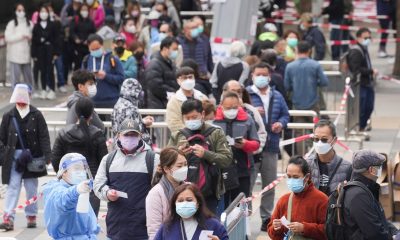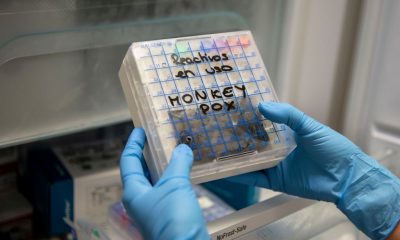The manufacturer behind the eye drops that made headlines for possibly killing one user and leaving others blind has officially issued a recall.
Global Pharma Healthcare is recalling its Artificial Tears Lubricant Eye Drops distributed via EzriCare and Delsam Pharma, according to the U.S. Food and Drug Administration (FDA).
The FDA said the company decided to pull out the product due to possible contamination with the antibiotic-resistant Pseudomonas aeruginosa.
“Use of contaminated artificial tears can result in the risk of eye infections that could result in blindness,” read the risk statement published by the agency.
Global Pharma has requested wholesalers, retailers and customers who have the product to stop its sale, distribution and use.
Consumers are strongly advised to contact their physician or healthcare provider if they have experienced problems while or after using the over-the-counter eye drops.
Adverse reactions or quality problems can be reported to the FDA’s MedWatch Adverse Event Reporting program online or by fax.
The recall was issued Thursday, weeks after the Centers for Disease Control and Prevention (CDC) published a warning about the Artificial Tears possibly causing a bacterial infection that’s resistant to multiple antibiotics.
The public health agency identified 56 isolates from 50 case patients from 11 states between May 17, 2022, and Jan. 19, 2023. Among the reported cases, one died due to a bloodstream infection, while three others became blind in one eye after an ocular infection.
The other patients investigated by the CDC got hospitalized due to respiratory infections or urinary tract infections.
At the time, the CDC already urged consumers to “immediately discontinue the use of EzriCare Artificial Tears until the epidemiological investigation and laboratory analyses are complete.”
New Jersey-based EzriCare addressed the issue via an online statement, saying it “immediately took action to stop any further distribution or sale of EzriCare Artificial Tears” after learning about CDC’s investigation.
“To the greatest extent possible, we have been contacting customers to advise them against continued use of the product,” the company added.
Though commonly found in soil and water, P. aeruginosa is also spread in healthcare settings. The bacterium is known to constantly find ways to develop antibiotic resistance, making it difficult to treat.
In 2017, the U.S. documented around 2,700 deaths due to multidrug-resistant P. aeruginosa.
















